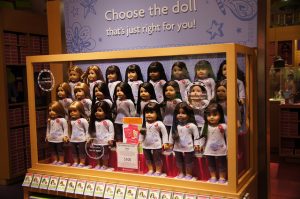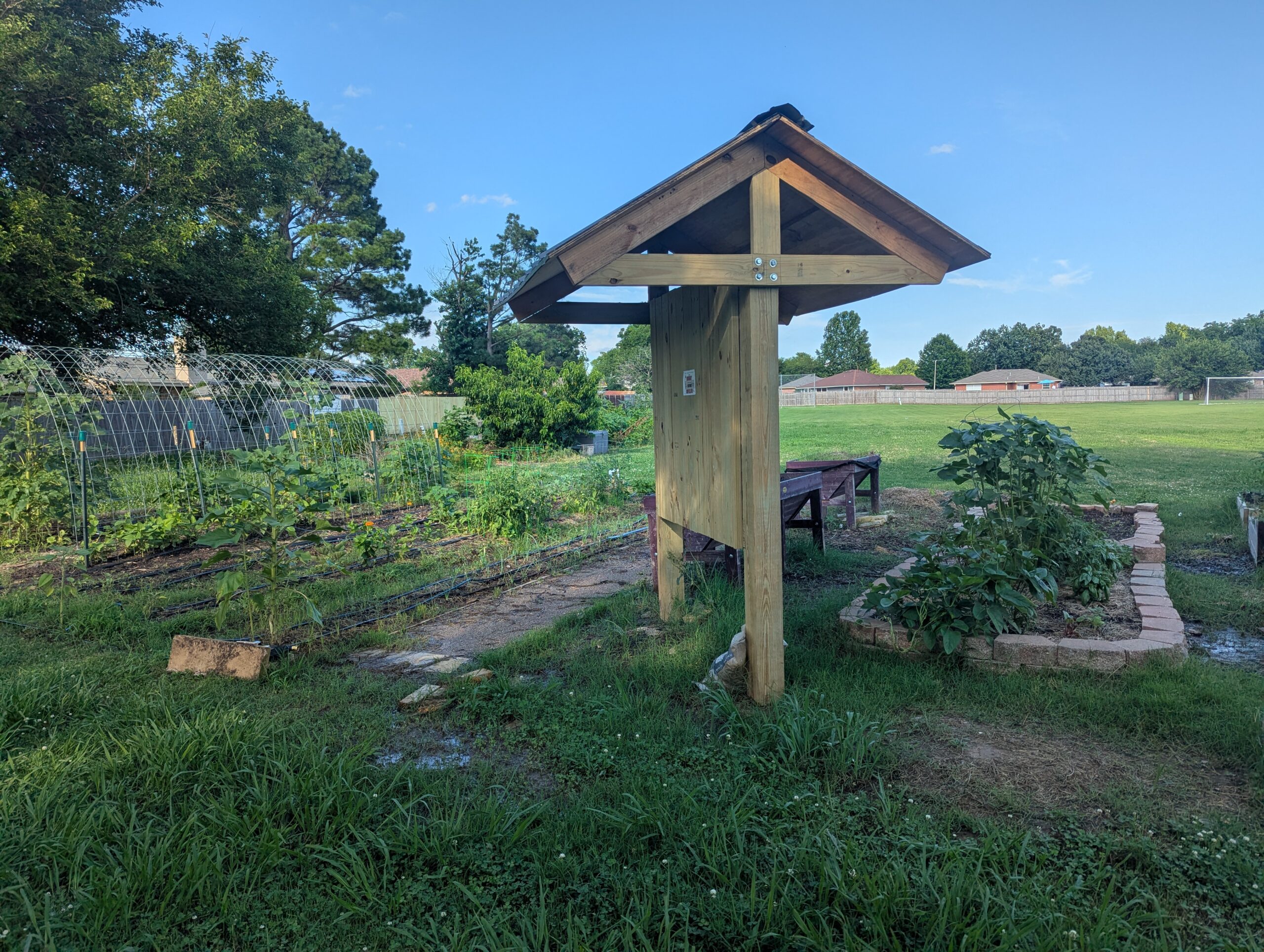Twenty-five years have passed since I chose to pursue a history degree. Amazingly, it is one decision I have never regretted or second guessed. Yet it would be a lie to suggest to prospective history majors or young historians that I knew just where my degree would take me. Being personable, intellectually curious, and open to new opportunities has served me and my history degree well.

Mark Speltz’s first job in corporate history was as a research historian for Pleasant Company, popular maker of American Girl dolls. Mia & Steve Mestdagh/CC BY-SA 2.0/via Flickr
I am unable to pinpoint the exact moment I selected history over political science, but I recall that my University of Minnesota history professors inspired me with the many different ways to use my history degree. A series of internships I had early on with the Minnesota Historical Society provided practical experience and independent study credits toward my degree. I knew most museums and cultural institutions were eager for volunteers and interns, so I sought out the specific departments and experiences that interested me most. Exposure to roles—and realities—inside a museum was invaluable. Furthermore, I began to establish the roots of a professional network I rely on to this day. As my research found its way into school programs and exhibitions there, I dreamed of becoming a curator in the museum world.
After graduation I headed to Washington, DC, where I gained two years of valuable editorial and publications experience at the Smithsonian Institution Traveling Exhibition Service. Back in Minnesota, I found that my flexibility as a freelance researcher allowed me to survive off fairly steady exhibit research and heritage tourism consulting work. Projects ranged from developing tourism brochures and writing an interpretive overview of northeastern Iowa to researching and collecting stories and artifacts for an Ellis Island Immigration Museum exhibit about Norwegian immigrants in New York. But it was in Madison, Wisconsin, that I landed my first corporate job as a historian with Pleasant Company, maker of the wildly popular American Girl dolls.
As a research historian with the toy and publishing company, I read widely and mined archival and museum collections to better understand and interpret the lives of children during critical eras in America’s past. Collaborating with talented authors, editors, artists, and product designers on more than a half dozen beloved American Girl historical characters was a true pleasure. Even better, though, was repeatedly hearing from writers, budding historians, and museum professionals who attributed their passion for history to the American Girl books.
During my 17-year stretch of employment at American Girl, I obtained my master’s degree in history with a specialization in public history, completed additional internships, and volunteered with local historical organizations. I continually sought out or created inspiring side projects, such as exhibits and encyclopedia entries—more often than not unpaid—that served as “resume builders.” Over time I came to understand that volunteering led to serving on boards. Articles prepared me for longer writing projects and my first book, about historic gas stations of all things, led to an award-winning book about Wisconsin’s historic bars and breweries. An encouraging adviser gave me the confidence to parlay conference papers into articles and later, to turn a proposal into a book published by the J. Paul Getty Museum.
Beginning anew on the West Coast this past March provided me with a fresh opportunity to reflect on two decades of experience and set future goals. In my new role as a senior historian with Wells Fargo’s Family & Business History Center, I use historical documents and storytelling to help families of unique wealth discover, understand, and preserve their family history for future generations. Like with any new job or challenging assignment, I frequently draw strength and rely on wisdom from mentors and apply lessons from hard-fought successes, and necessary failures, alike.
Looking back to assess one’s work and professional experience can be insightful and instructive. I’ve noticed how each small step, whether professional or extracurricular, led me down a career path whose pattern is only visible in hindsight. Though I sometimes feel like a generalist rather than an expert in any one topic, I truly believe my flexibility and willingness to explore new ideas and side projects helped me stay curious and energized.
I would advise anyone considering a history major, or any degree program really, to do what you love. My passion is historical research, but my work as a public historian is about so much more than reading, writing, interpreting, and telling stories about the past. It’s also about building relationships, networking, establishing trust, and listening. And each personal connection and experience, I’ve learned, serves as a building block upon which the next challenge or opportunity will be built. Be open to new opportunities and going beyond your comfort zone. Create. Dream. Fail and start again. No one can accurately predict where a history degree will take them. The unpredictability, if you’re open to it, can be part of the fun.
This post first appeared on AHA Today.
Mark Speltz is senior historian with Wells Fargo’s Family & Business History Center in San Francisco, California. Before that, Mark worked as a senior historian at American Girl. His third book, North of Dixie: Civil Rights Photography beyond the South, was published by the J. Paul Getty Museum in November 2016.
This work is licensed under a Creative Commons Attribution-NonCommercial-NoDerivatives 4.0 International License. Attribution must provide author name, article title, Perspectives on History, date of publication, and a link to this page. This license applies only to the article, not to text or images used here by permission.


